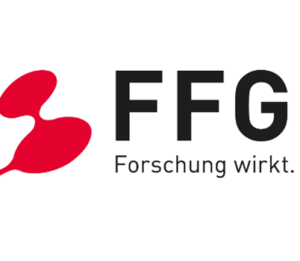Facing the Challenges of Wire-based Manufacturing and the Climate Crisis

The project FitAM is funded by the Austrian Research Promotion Agency (FFG) under the project number 41546361.
Details
Wire-based additive manufacturing (WAM) is a key contributor to reaching sustainable manufacturing and combating climate change. To grasp the advantages of the technology, the use of recycled materials has to become the norm and the application of WAM needs to become easier. To address both necessities, the project FitAM tries to accelerate the benefits of WAM while at the same time conquering the current challenges of its application.
Within the context of the global climate crisis, recycling is more important than ever before. Additive manufacturing is no exception to this general requirement of sustainability. Within this context, the processing of metal alloys through wire-based additive manufacturing (WAM) is an important industrial contributor to the carbon-neutral circular economy.
WAM is a specifically directed energy deposition (DED) process in which raw material in the form of wire is used during the build-up of a part. The process shows benefits in its high build-up rates and for the production of large parts of several meters in size. It is furthermore relatively inexpensive and highly flexible in material use while providing good mechanical properties of the manufactured product. For the application of metal additive manufacturing in the project FitAM, the titanium alloy Ti6Al4V is used. This material has several desirable properties, including high strength with low density, excellent corrosion properties and chemical resistance. These aspects enable varying applications of parts in the automotive industry, marine equipment, aerospace, gas storage and petro-chemistry.
Despite the obvious advantages of WAM, implementing the process brings some difficulties. This firstly concerns process planning, since WAM planning is time-consuming and error prone, resulting in geometry deviations during the build-up which cannot be corrected afterward. Limited monitoring tools and manual intervention increase the instability of the process. On a secondary level, problems arise from the unreliability of the process as WAM process deviations require safe milling strategies that cost both additional time and energy. Lastly, the use of recycled metals is widely underresearched which restricts not only the possibilities of manufacturing but also sustainability for improved industrial practices.
The project FitAM addresses the challenges of the current climate crisis and wire-based manufacturing in several ways. This is because the project aims to gain deeper process knowledge of WAM through a vision system that allows insights into the core processes of the technology. The insights of the vision system are in turn used to improve process control by checking the inline process of the welding parameters and the component build-up. This information is used holistically in path planning and simulation.
The intended results of the project are optimized tool path planning methods that incorporate simulation insights and inline 3D measurements, process simulation methods for minimizing distortions in WAM processes, and the development of an optical inspection setup for inline measurement of weld seam geometry for in-process monitoring as well as 3D measurements of the layer-by-layer weld seam. Most important for the environmental aspects of the project, the optimized path planning reduces the surplus material while recycling options for titanium scrap are being sought. Finally, the entire concept of WAM will be integrated and experimentally validated by the production of a functional model of a titanium vacuum container.
Overview of the main project goals:

ModuleWorks’ central contribution to the project are new path planning components for wire-based additive manufacturing and milling processes. ModuleWorks is furthermore involved in integrating and validating the enhanced and optimized WAM processes.